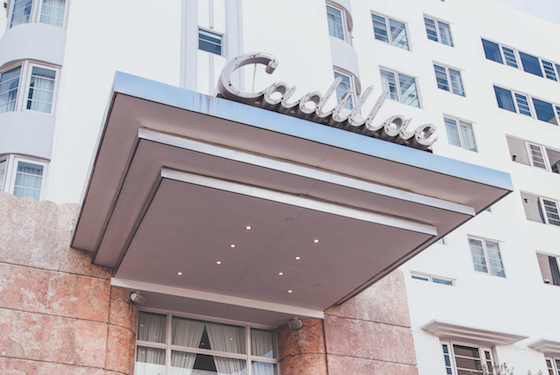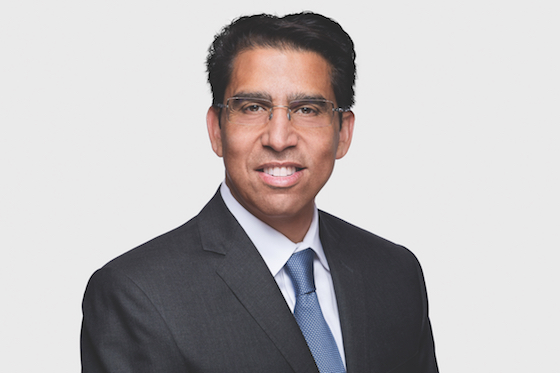In the past decade, hotel owners have faced a barrage of new brands, new choices for independent hotels seeking the shelter of a larger organization, and newly defined segments. For an owner or investor, it can be daunting. Go with a traditional brand? Sign on with a consortium? Fly solo? Bet on a not-quite-proven soft brand?
Figuring out which model aligns best with a property is not simple, although the end game seems pretty straightforward. “We look at what is going to maximize the value of the real estate,” says Ramsey Mankarious, CEO of London-based Cedar Capital Partners. Cedar’s holdings include high-profile luxury independent hotels and brand-managed properties.

Independents dominate in Europe, in large part because the existing inventory often doesn’t fit well into brands’ standards. Because of that, soft brands and consortia are appealing options for many owners. But with bigger properties, “banks want to see a professional international brand running the hotel, which is what they are used to,” Mankarious says.
Branding is making inroads in Europe, particularly France, Spain and the U.K., says Phillippe Doizelet, managing partner at?Horwath HTL in France. The shift started when companies like IHG and AccorHotels moved from ownership toward franchising, and was nudged along by the rise of OTAs.
Soft brands are especially well-suited to the current environment. “All those hotels that have capitalized on some lifestyle flair now have the guarantee offered by a brand name and strong distribution,” Doizelet says. “You end up being endorsed by a major group, but you don’t have to develop based on a very rigid concept.”

Jay Shah, CEO of Philadelphia-based REIT Hersha Hospitality Trust, looks at four factors when deciding which model fits best: the ability to create real brand equity, market conditions, location and size. He thinks soft brands make sense for many owners.
“It allows the guest to enjoy the independent experience with a certain quality?assurance, and it allows them to participate in the loyalty programs, which remain a driver,” Shah says. “Owners, in turn, get the comfort of knowing there are some?traditional hard-brand drivers in place.”
Shah adds, “As an independent, you will have more costs around marketing, branding and sales; with a soft brand some of that will be supported by the brand. You have to decide whether the amount you pay for that will drive incremental EBITDA.”
Going it alone is not an option for many owners who lack the expertise and staff to survive against better-equipped competition. “You have to be better, more focused and more effective in your sales and marketing to make up for what the brands do,” says John Hamilton, senior vice president of development at Pyramid Hotel Group, a Boston-based asset and property management company.
In parts of Asia Pacific, where a building boom has stretched the?capacity of architects, interior designers, engineers and other experts, “appointing a major brand with a good technical services team can be of great assistance,” says Robert MacIntosh, executive director at CBRE Hotels Asia Pacific. Developers are turning to franchise agreements and management agreements to tap their specialized services, he adds.
Yet another factor to settle before committing to any kind of brand: exit strategy. “It’s very important to consider your holding pattern for the asset. How long are you going to hold it? If it’s short-term, there is a premium when selling an unencumbered asset. The pool of potential investors is significantly larger,” says Andrea Grigg, executive vice president of JLL. Buyers want flexibility in determining a hotel’s future, and a long-term?contract limits options.
Rules of thumb
“If you are in a very dynamic market, like a city center, or if the hotel is well-located and has some flair in décor, you can be successful as an independent — no question,” Doizelet says. It would be difficult for a hotel of less than 50 rooms to get the benefit of affiliation, he adds.
Shah says when an independent?operator can offer a unique experience, pricing power might exceed that of a similar branded hotel. “So you might outperform on the top line without additional costs on the bottom line,” he says. But, Shah adds, operators need to have their own capabilities in e-commerce, revenue management, marketing and sales.
As a rule, says Craig Mason, executive vice president of CHMWarnick, a hotel asset management and advisory firm, “the smaller the hotel and better the location, the more you can lean heavily on being independent or soft-branded. A larger hotel in a weaker location may need the support of a brand to help fill the rooms, relying heavily on loyalty programs.”
Location — not flag — arguably is the primary driver of demand, Mason adds. “A well-located hotel next to a major demand generator has a unique advantage. If the hotel is not large — less than 250 rooms — the demand generator located nearby may be enough to fill the hotel, and there is no reason to pay the fees for a soft or hard brand.”
Loyalty is perhaps the most compelling reason to line up with a chain. But “the point-collecting mentality in Asia is nowhere near what it is in North America,” says Eric Levy, managing director of Tourism Solutions International in Singapore. But he also thinks it will catch up eventually.
Some hotels demand a brand:?Suburban, airport and roadside hotels and those with significant meeting facilities rely heavily on chain affiliation. Lenders and institutional investors typically also prefer brands. And not everyone wants a unique experience. “Customers still love standards,”?Doizelet says. “Especially when they are traveling for business, they’re not keen to go on an adventure. What they’re looking for is convenience.”
Hotels in secondary or emerging markets benefit from a brand as well, Mankarious argues. “People visiting those markets don’t know them that well, so they put a lot of emphasis on feeling comfortable — and that means choosing a brand,” he says.
Asian destinations are ripe for branding as they open up to more international travelers, MacIntosh notes, and “brand recognition may be difficult for an independent to achieve unless offering a unique product.”
Is brand affiliation a plus during an economic downturn? “During downturns there is a sense of safety with a brand-managed property,” Grigg says. Mason agrees. Even soft brands, he says, offer a safety net because of the reservation system and loyalty program supporting the asset. But Shah suspects that while branded hotels might do marginally better in a downturn, independents would recover more quickly.
But brand can’t make a silk purse from a sow’s ear, Levy says. “Some properties just don’t have the facilities, the location, or whatever attribute is required to be competitive, and a brand is not a panacea.”
Mason says owners sometimes look to brands and managers as advisers, “which can be a slippery slope,” he notes. Bringing in a third party early in the process to help navigate development and negotiate the branding/management decision is a way to avoid surprises.
“We tell clients, ‘Don’t fall in love with a brand when you are developing a product,’” Grigg agrees. “Make sure you do your homework and request information. You need to understand that you can have the brands compete for your business.”
What’s down the road?
The greater availability of affiliation choices for owners opens up opportunity for global expansion among the major players, especially in markets with many independents and new development. But there’s a downside to all those bulky product lineups.
“The reality is that there is brand bleed across many of the current brands within the large hotel companies, potentially diluting demand for their core brands in a market,” Mason says. “I think this, as well as the high cost to be affiliated with a brand, is driving more owners to consider the independent model and the flexibility it represents.”
One casualty of brand proliferation might be some consortia. All those soft, boutique or lifestyle brands theoretically are chasing many of the same properties that are aligned with traditional soft brands. Laurence Geller, chairman of Geller Capital Partners, a Chicago-based luxury hotel investment and management firm, suggests consortia may be best suited to making deals with one chain or another. He also predicts that more operators with small groups of branded independent hotels will join with industry giants, mainly to leverage scale in technology and distribution.

